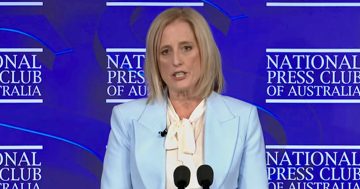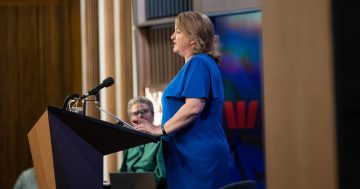Financy* says its Women’s Index shows that economic gender equality is back on track but major challenges still persist.

The Financy Women’s Index (FWX) for the 2022 September quarter shows women’s financial progress is back on track despite being rocked by Covid disruptions; however the time frames to achieving economic gender equality remain daunting.
The FWX measures women’s financial progress with a higher score indicating advancement.
The Index also measures time frames to economic gender equality and covers seven critical areas which include education (also described as education and expected earnings), employment, underemployment, the gender pay gap, unpaid work, board leadership (ASX 200) and superannuation.
The FWX in the September quarter increased to 73.3 points out of 100, up 0.4 points from 72.9 in June.
The gain was helped by gender gap improvements in underemployment (up 1.9 points), board leadership (up 0.8 points) and education (up 0.5 points).
At the current pace of annual progress, it will take 23 years to achieve gender financial equality (based on the median of all sub-index time-frames).
There is still a lot of work to be done to ensure that Australian women fully recover financially from the pandemic and aren’t economically penalised for the choices they make in areas such as education and employment.
While it is encouraging that the FWX is tracking stronger in 2022, up 0.2 points, it is still concerning that, in annual terms, the FWX remains 1.6 points lower than the record 75-points achieved in September 2021 and September 2020.
The FWX report for the September quarter includes noteworthy progress for women in the sub-index area of education and expected earnings.
The FWX education sub-index rose to 93.02 points out of 100 in the quarter, up 0.45 points from June’s 92.57 point reading.
This was helped by more women switching to fields of study (information technology up 68 per cent) that have higher expected earnings outcomes relative to men.
Despite the improvement in education, the area remains the worst performing relative to the time frame to gender equality, which stands at 139 years, says Dr Lili Sussman, chief strategy officer of non-bank lender Wisr.
“We will not see the gender equality gap closed until we challenge existing norms, processes and institutions,” says Dr Sussman.
Unpaid work has the second worst time frame to gender equality at 59 years, compared to 76 years in 2020.
The FWX area with the smallest time frame to gender equality is board leadership which improved to 6.1 years in the September quarter from 6.2 in June.
The result has been driven by slow but steady gains in the number of females holding ASX 200 board director positions.
Superannuation has a 19-year estimated time frame to gender equality, which is an improvement on the 33 years reported at the start of this year.
The estimated time frame to close the years to equality in employment stands at 26 years and is consistent with the 27 years at the end of 2021.
“Despite the numbers improving on gender equality, here we are in 2022 having the same discussions,” says Annick Donat chief executive officer Clime Investment Management.
“This leads me to believe there’s still a wide gap between knowing and understanding or acceptance.”
“Financy is hopeful that the Federal Government’s commitment to achieve gender equality and support women’s workforce participation will help reduce concerning time frames to economic gender equality in Australia,” say Hartge-Hazelman
Financy has stated that the following actions need to take place to accelerate financial outcomes for women and help to achieve gender equality in the near term.
1. A time frame target needs to be set as part of the Federal Government’s pledge to develop a national strategy to achieve gender equality.
This time frame target would parallel the climate change approach by reducing a distant target to meaningful interim goals.
FWX target area: gender equality time frames.
2. Superannuation payments to be included as part of Commonwealth Paid Parental Leave changes.
FWX target area: superannuation.
3. Investment in schools and university-led programs that educate students on the financial implications of gender stereotypes, to ensure that women in particular, are able to make fully informed choices.
FWX target area: employment, education and gender pay gap.
4. Ongoing investment in media campaigns that seek to educate society on the benefits of diversity in the home and breaking down the gender stereotypes around unpaid work.
FWX target area: unpaid work.
5. Mandatory gender-balanced targets of 40 per cent minimum for female board directors across all listed companies by 2030 or within 2 years of list date.
FWX target area: board leadership and gender pay gap.
6. Government incentives for organisations that have a target of 5 per cent procurement spend with genuine and authenticated female owned and led businesses.
FWX target area: employment.
“The latest FWX index highlights that we are making progress to gender equality from an economic perspective in Australia but we have a long way to go,” says Dr Shane Oliver Head of Investment Strategy and Chief Economist AMP.
“Some areas like women on boards have made great strides thanks to a proactive approach and it’s amazing that corporate Australia is leading the way here with benefits for all Australians.
“Others where we are more reliant on attitudinal change – such as in unpaid work and the education men and women undertake – are lagging badly behind and at the current rate will take lifetimes to correct.”
*Financy creates and publishes a variety of content on women’s money matters.
This article first appeared at financy.com.au.











